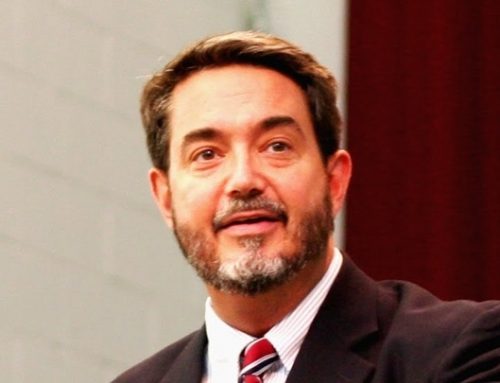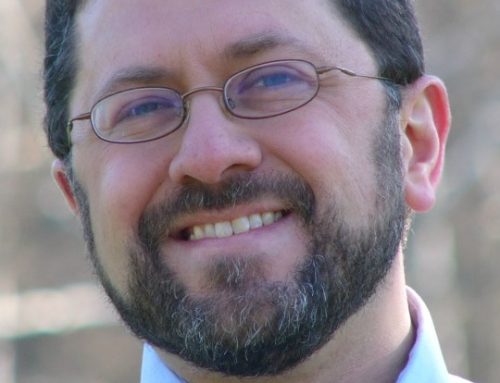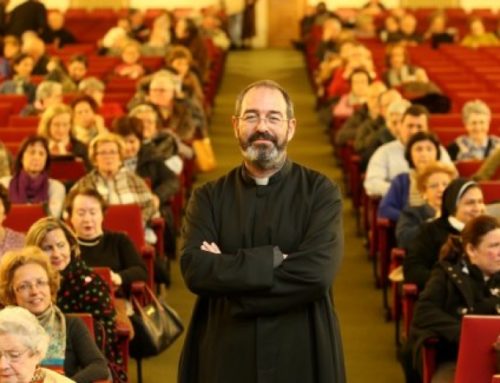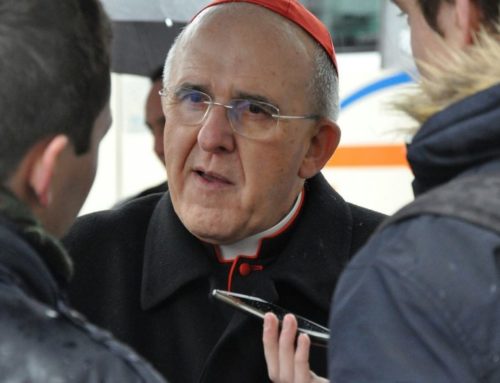Keeping in mind the Year of the Priesthood inaugurated by Benedict XVI, we, the staff of www.primeroscristianos.com/en interviewed Professor Francisco Varo, Doctor of Biblical Philology of the Pontifical University of Salamanca, Doctor of Theology in the University of Navarre, and expert in Sacred Scriptures, to ask him about the origins of Christian priesthood.
“No one is a priest in his own right, rather it’s a participation in the Priesthood of Christ”
The staff of earlychristians.org interviewed Professor Francisco Varo, Doctor of Biblical Philology of the Pontifical University of Salamanca, Doctor of Theology in the University of Navarre, and expert in Sacred Scriptures, to ask him about the origins of Christian priesthood.
How can one explain the fact that Jesus did not refer to himself a “priest”?
The priest is, primarily, a mediator between God and man. A mediator is someone who makes present God among other persons and, at the same time, someone who presents before God the needs of the people and intercedes for them. Jesus, who is true God and true man, is the most authentic Priest.
Given the reputation of the priesthood of Israel during the time of Jesus, which was limited to the realization of some ceremonial rites wherein some animals were sacrificed in the temple, these priests were habitually more concerned about political matters and the desire for authority. It is not surprising that Jesus never presented himself as a priest.
Jesus’ Priesthood was not the priesthood that was exercised by the priests of the Temple of Jerusalem. Moreover, among his contemporaries, it appeared evident to them that His Priesthood was atypical because according to the Law, the priesthood was reserved to the members of the tribe of Levi and Jesus was of the tribe of Judah.
His figure resembles more the prophets of the antiquities, who preached the fidelity of God (and in some cases like Elijah and Elisha who also realized miracles), or more importantly the itinerant teachers who were visiting cities and villages accompanied by a group of disciples who followed them. Through these sessions in which their disciples received instructions, the itinerant teachers come in contact with other people. In fact, the Gospels reflect that when the people talk of Jesus, they call him “Rabbi” or “Teacher”.
Did Jesus really perform tasks exclusive to priests?
Of course. It is the task of the priest to bring people closer to God, and at the same time, to offer sacrifices in favour of the people. The proximity of Jesus to humankind in need of His salvation and His intercession so that the mercy of God can be attained culminates in the Sacrifice of the Cross.
Precisely because of this that made it surprising compared to the practice of the priesthood during those times. The crucifixion cannot be considered by those men as a priestly offering, but rather the contrary. The essence of the sacrifice was not the sufferings of the victim, or its death, rather the realization of a rite according to the established conditions in the Temple of Jerusalem.
The death of Jesus was presented before their eyes in a very different manner: as the execution of someone sentenced to death, carried out outside the walls of Jerusalem, and which instead of attracting divine benevolence, it was considered – based on the context of a text of Deuteronomy – a curse.
When did the Early Christians start speaking about “priests” as we know them now?
In the events that followed the Resurrection and the Ascension of Jesus to heaven, and further the descent of the Holy Spirit during Pentecost, the Apostles started to preach, and, with time, they went on associating collaborators to their task. Had Jesus not designated himself as a priest, it would be logical to surmise that it would not have occured to his disciples to call themselves in a similar way during those first moments.
In fact, the tasks that they carried out had very little relevance to the tasks which the Jewish priests exercised in the Temple. Therefore, they made use of other names that described better their functions in these first Christian communities: “apostles” which means “sent”, “episcopos” which means “inspector”, “presbyteros” which means “elders”, or “diákonos” which means “servers” or “assitants”, among others.
Nevertheless, upon reflecting on and understanding the tasks of these “ministers” who are the Apostles themselves or those whom the Apostles instituted, one perceives that the tasks of the Apostles referred to functions that were genuinely priestly, albeit they deviated greatly from what the priesthood of the Isrealites stood for.
What is the “new meaning” of the christian priesthood? what does it signify for us right now?
This “new meaning” can be appreciated already, for example, when Saint Paul speaks of his tasks for the service of the Church. In his letters, he employs a term that refers clearly to the priesthood to describe his ministry, but which does not refer to a priesthood that bears its specific qualities but rather a participation of the High Priesthood of Jesus Christ.
In this sense, Saint Paul does not try to identify himself with the priests of the Old Covenant because their task does not consist of burning over the fire of the altar the cadaver of an animal to take it out – “sanctifying it” in their ritual point of view – from this world, but rather “to sanctify” – in another sense, helping them to achieve “perfection” by putting them in the presence of God – men who are alive with the fire of the Holy Spirit, ignited in their hearts through the preaching of the Gospel.
In the same manner, when he writes to the Corinthians, Saint Paul emphasizes that he forgave sins not by his name, but rather “in persona Christi” (cfr. 2 Co 2:10). It is not about a simple representation or an action “in the place of” Jesus. It is the same Christ who acted with his ministers and through them.
It can be affirmed, therefore, that in the beginnings of the Church, there were ministers whose ministry possessed a character that was truly priestly, which carried out diverse tasks at the service of the Christian communities, but with a decisive common element: none of them were “priests” in their own right – they didn’t derive benefit from the autonomy of a priesthood in his their right or with their own personal seal –, but rather they participated in the Priesthood of Christ. And the same holds true for the priests of the present-day Church.







Leave A Comment
You must be logged in to post a comment.